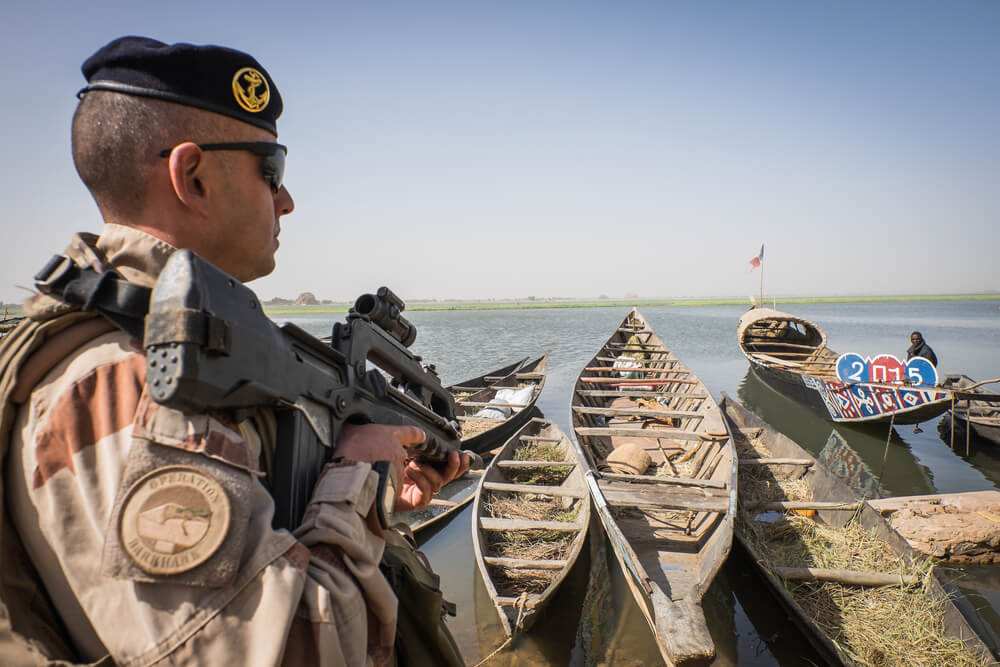As Western governments lament their waning influence across the Sahel – France handed over its last base in Chad in January, effectively ending its military presence in the region – they cling to an outdated narrative.
The Sahel is no longer a chessboard on which the struggles between the West and Russia play out.
More importantly, it is now the site of a contest between Algeria and Morocco, two North African powers vying for strategic dominance.
While the world watches Russia’s Africa Corps, the Wagner Group’s successor, expand its footprint in the Sahel, it overlooks the more permanent and transformative presence of Algeria and Morocco.
For these economies, with a combined GDP of over $418 billion, the region is not a distant frontier for proxy battles; rather, it is an important trade corridor and key source of minerals, making it critical to their national and economic security.
For decades, the Sahel’s orientation was a foregone conclusion, shaped by its postcolonial ties to France and the security architecture of the United States-led global war on terror. But that era is over.
The widespread frustration with Western intervention has resulted in eight military coups across West and Central Africa since 2020.
Algeria and Morocco have stepped into the resulting power vacuum, each with a distinct vision for bringing the region into its economic orbit.
Atlantic Initiative
The most visible battle concerns trade. In 2023, Morocco launched its Atlantic Initiative, which will offer landlocked Sahel countries a secure and efficient gateway to global markets through the planned deep-water port of Dakhla in the disputed Western Sahara.
This mega-project – the port will cost an estimated $1.2 billion and is expected to handle 35 million tons of goods annually – seeks to reorient the region’s commercial flows westward.
Morocco aims to expand trade with Sub-Saharan Africa
Moreover, by positioning itself as the bridge between the Sahel and the Atlantic, Morocco aims to expand trade with Sub-Saharan Africa, which, according to my calculations, totaled $1.2 billion in 2022 – a more than 17-fold increase since 2004.
Trans-Saharan Highway
Algeria, for its part, has almost completed the Trans-Saharan Highway, which will stretch nearly 5,000 kilometers (3,100 miles) from Algiers to Lagos, Nigeria, passing through Niger.
The road has been decades in the making, as part of a larger strategy to connect Algeria with West Africa, boost its non-oil exports, and make it the region’s preeminent power broker.
The Trans-Saharan Highway will establish Algeria as the main gateway between Europe and the massive West African market
It will also establish Algeria as the main gateway between Europe and the massive West African market and give landlocked African countries a direct route to the sea.
While the highway was intended to feed into a new $5 billion mega-port in Cherchell, Algeria – financed and built by China – that project has been shelved indefinitely.
The Sahel’s vast mineral wealth
The rivalry between Algeria and Morocco is not just about asphalt and shipping lanes. It is also a race to secure the Sahel’s vast mineral wealth, which will be critical for both economic diversification and decarbonization.
For example, Niger is the world’s seventh-largest producer of uranium, Mali is Africa’s third-largest producer of gold, and Burkina Faso has large deposits of manganese.
For Morocco, which has a large mining sector and holds 70% of the world’s phosphate reserves, securing access to these minerals is a top strategic priority.
Meanwhile, Algeria views them as a means to diversify its fossil-fuel-dependent economy and counter Moroccan influence in its backyard.
Whoever controls the Sahel could gain significant leverage over Europe’s green transition
Both countries are also hoping to play a central role in the emerging clean-energy economy by developing green hydrogen.
By 2030, Morocco aims to generate 52% of its electricity from renewables, supporting its green-hydrogen plans.
Algeria, with vast solar potential estimated at 180 terawatt-hours per year, is pursuing a strategy to meet up to 10% of Europe’s green-hydrogen demand by 2040.
The country plans to export it through the “SoutH2 Corridor” pipeline project, which will connect Algeria and Tunisia to Italy, Austria, and Germany.
Whoever controls the Sahel – which also holds huge untapped solar potential – could gain significant leverage over Europe’s green transition.
Western governments must shift their focus
To be sure, Algeria and Morocco are not the only countries competing for economic and security influence in the Sahel.
The United Arab Emirates, Saudi Arabia, and other Gulf countries are also investing in ports, agriculture, and telecommunications across the region.

The Sahel’s future stability and alignment will be determined not by the number of foreign troops on the ground, but by the success of the economic visions offered by its North African neighbors
Their involvement may be driven more by a desire to project global power than by the immediate strategic interests that motivate their North African counterparts, but it will nonetheless shape the region’s future.
Where does that leave Europe and the United States? For too long, both have viewed the Sahel as a region beset by terrorism and at risk of capture by other great powers, leading to major policy blunders that have alienated local populations and created the very instability that their interventions were meant to prevent.
To remain relevant, Western governments must shift their focus: The Sahel’s future stability and alignment will be determined not by the number of foreign troops on the ground, but by the success of the economic visions offered by its North African neighbors.
Only by engaging with the complexities of this new reality can the West forge a sustainable and effective policy for one of the world’s most critical regions.
Dalia Ghanem is Director of the Conflict and Security Program and a Senior Fellow at the Middle East Council on Global Affairs.